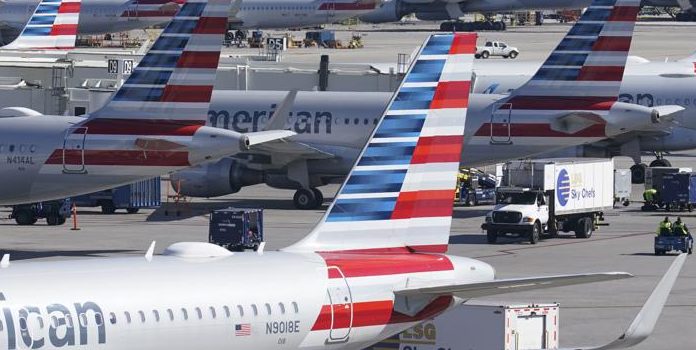(Ken Silva, Headline USA) The DOJ Inspector General issued an advisory to the Drug Enforcement Administration on Thursday, warning that its use of confidential informants on commercial airlines could violate the Fourth Amendment.
Earlier this year, the DOJ-OIG launched a review of the DEA’s interdiction activities after receiving several allegations of abuse. The DOJ-OIG has issued multiple reports over the decades about DEA agents racially profiling minorities when asking to conduct “consensual” searches at airlines.
In its most recent investigation, the DOJ-OIG said it learned of a DEA office that has a confidential informant who is an employee of a commercial airline. That informant—referred to in the report as a confidential source—has for years been receiving a percentage of cash seized from passengers based on the informant’s tips.
The DEA has informants working for commercial airlines, who receive a percentage of the cash seized based on their tips, according to this DOJ-OIG report issued yesterday
(STORY BELOW) pic.twitter.com/xIR7ZcEe5T
— Ken Silva (@JD_Cashless) November 22, 2024
“Specifically, we learned that for the past several years this [confidential source] has sent the DEA office information from the airline’s reservation system identifying passengers who purchased tickets to certain U.S. cities within 48 hours of the travel so that the DEA could, among other things, approach those passengers at the airport and seek their consent to search their carry-on luggage,” Thursday’s report said.
The DOJ-OIG recounted an example of the DEA informant’s work. On one morning earlier this year, the informant told the DEA about five individuals traveling to a major U.S. city and scheduled to leave approximately 3 hours later.
“None of the five had a prior relevant criminal history. Thus, any consensual encounter would have been based solely on the fact that within the previous 48 hours they had purchased tickets, some of which were one way, to fly to a major U.S. city that is a significant business center,” the DOJ-OIG report said.
“The DEA had no additional information to suggest that these five passengers might be engaged in illegal activity.”
Despite their clean track record, the DEA approached one of the travelers at the airport and asked to conduct a consensual search. The traveler declined, but then a DEA task force officer seized the person’s bag. The traveler then decided to stay with his bag instead of boarding the flight.
“The DEA TFO then told the traveler that they could either consent to the search of the bag or the DEA would detain it further and seek a search warrant. The passenger eventually told the DEA that it could search the carry-on bag and signed a consent form,” the DOJ-OIG report said.
“No cash, drugs, or other contraband was found when the DEA searched the bag, and the bag was returned to the traveler. By that time, the traveler had missed their original flight. The traveler made a video and audio recording of this encounter on a personal recording device, and an edited version of the video and audio has been made public.”
The DOJ-OIG found multiple flaws with how the DEA handled the situation, including the fact that its agents weren’t wearing body cameras. And because of the delay caused by the travelers initial refusal to be searched, the DEA was unable to search the other four people, the report added.
The DOJ-OIG said it’s still investigating the DEA’s use of informants. But thus far, investigators have found numerous legal risks.
“Among them are whether the DEA’s multiyear payments to a Limited Use CS could result in a finding that the CS is acting as an agent of the DEA, thereby rendering the CS a government actor for Fourth Amendment purposes,” the Inspector General report said.
“It also raises questions as to whether CSs employed by private transportation companies may be violating state law by providing passenger data to the DEA (in the absence of a subpoena) in the increasing number of states that tightly regulate business use of consumer data,” the report said.
“Additionally, Limited Use CSs provide information to the DEA without direction about suspicious activity or behavior that could be indicative of criminal activity.”
After the DOJ-OIG told the DEA about its findings, on Nov. 12 the agency suspended its practice of approaching passengers for consensual searches—unless the activity is either connected to an existing investigation or “approved by the DEA Administrator based on exigent circumstances.” The DOJ-OIG also recommended a number of reforms to the DEA’s consensual-search program, to which the agency agreed.
Ken Silva is a staff writer at Headline USA. Follow him at x.com/jd_cashless.

